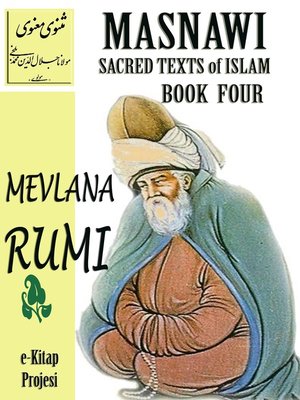
Sign up to save your library
With an OverDrive account, you can save your favorite libraries for at-a-glance information about availability. Find out more about OverDrive accounts.
Find this title in Libby, the library reading app by OverDrive.



Search for a digital library with this title
Title found at these libraries:
| Library Name | Distance |
|---|---|
| Loading... |
The Fourth Book begins with an address to Husamu-'d-Din, and this is followed by the story of the lover and his mistress, already commenced in the third book. A certain lover had been separated from his mistress for the space of seven years, during which he never relaxed his efforts to find her. At last his constancy and perseverance were rewarded, in accordance with the promises "The seeker shall find," and "Whoso shall have wrought an atom's weight of good shall behold it."
Story I: The Lover and his Mistress
Story II: The Building of the "Most Remote Temple" at Jerusalem
Story III: The Youth who wrote a letter of complaint about his rations to the King
Story IV: Bayazid and his impious sayings when beside himself
Story V: The Three Fishes
Story VI: Moses and Pharaoh
Story VII: The Courtier who quarreled with his Friend for saving his Life
Story VIII: The Prince who, after having been beguiled by a Courtesan, returned to his True Love
Story IX: The Mule and the Camel
The Masnavi is divided into six books, and Rumi wrote prefaces for each book. The earliest complete manuscript (the "Konya manuscript") was completed in December, 1278 (five years after Rumi's death).
• Books 1 and 2: They "are principally concerned with the nafs, the lower carnal self, and its self-deception and evil tendencies."
• Books 3 and 4: These books share the principal themes of Reason and Knowledge. These two themes are personified by Rumi in the Biblical and Quranic figure of the Prophet Moses.
• Books 5 and 6: These last two books are joined by the universal ideal that man must deny his physical earthly existence to understand God's existence.







